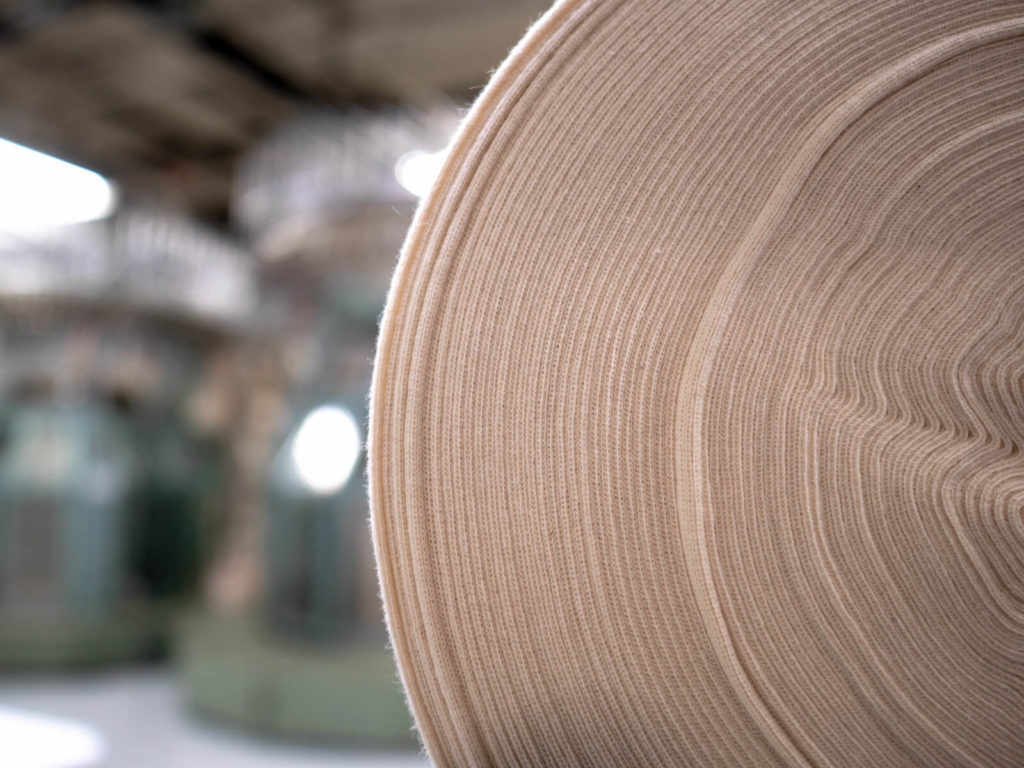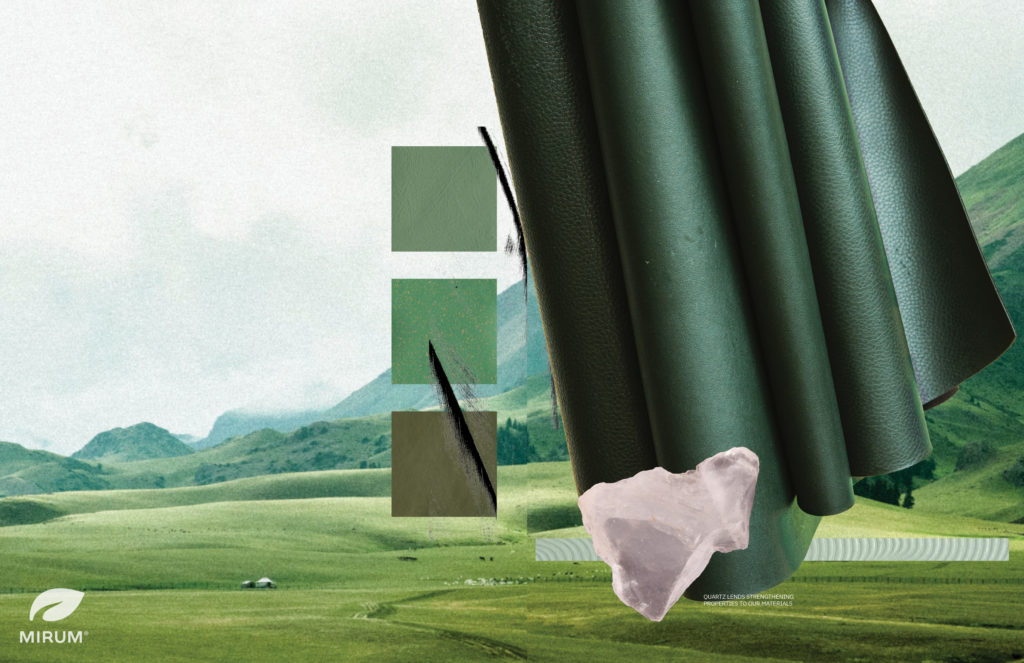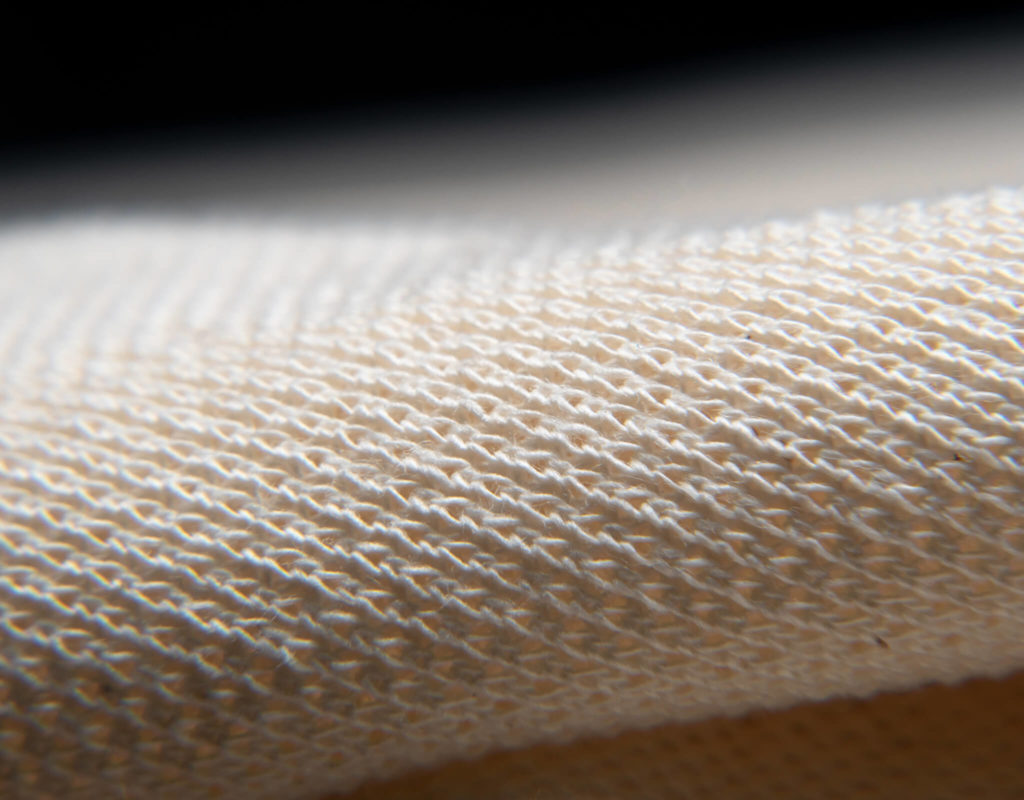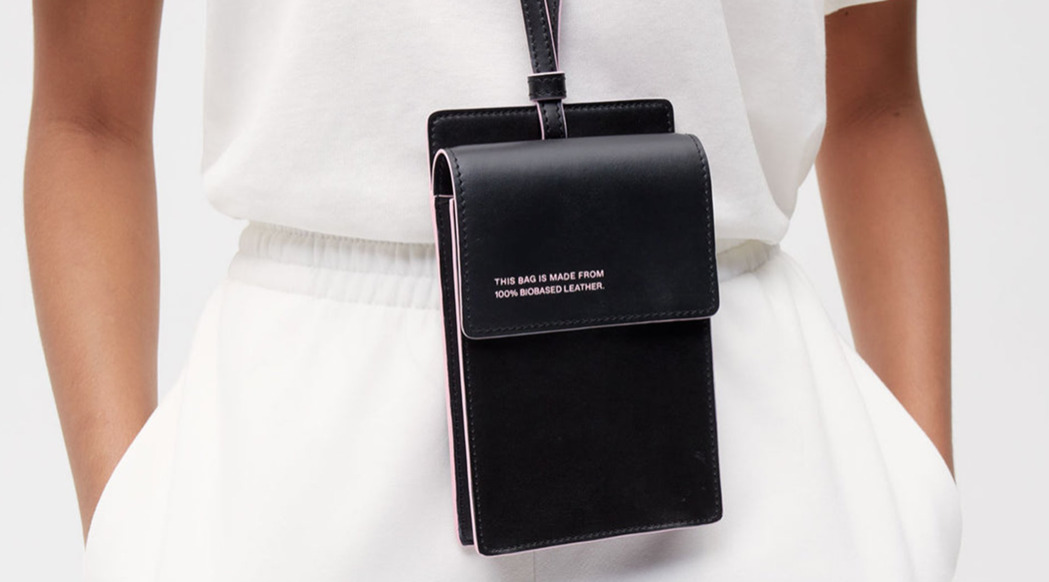4 Mins Read
Natural Fiber Welding (NFW) just confirmed it has closed an $85 million Series B funding round. Evolution VC Partners led the round, with Tattarang, Lewis & Clark Agrifood, Collaborative Fund and others participating. BMW iVentures and Ralph Lauren Corporation were confirmed as return backers. Funds will be used to scale production of various proprietary circular materials.
Illinois’ NFW serves numerous sectors, including the fashion and automotive industries. Since 2015, the company has developed innovative material platforms that can meet the demand for low-carbon and bio-based fabrics. Its proprietary inventions include Clarus, a collection of all-natural textiles and Mirum, one of the only 100% bio-based, plastic-free vegan leather alternatives on the market.

Designing a sustainable materials future
The recent Series B was launched to fund across the board Clarus and Mirum platform expansions. Increased capacity will be essential to meet growing global demand. New product development will be funded alongside, with molded composite materials being created. These are thought to be in motion to support global brand partners as they move towards more circular economy models. Together with the Clarus and Mirum materials, NFW hopes the new products will create a comprehensive range of environmentally motivated materials for brand partners to use.
“We envision a world that doesn’t rely on plastic, where abundant natural materials enable people and the planet to thrive together,” Luke Haverhals, CEO and founder of Natural Fiber Welding said in a statement. “We’re here to leave the world better than we found it and we look forward to working with our brand partners to build a comprehensively circular coalition for the planet.”

Alternative materials in focus
Clarus accounts for NFW’s performance fabrics. All are made using recycled or virgin natural fibres that negate microplastic shedding. Developing technical materials is an attempt to close gaps in the circular model, by removing hurdles to sustainable fabric choice due to specialist needs. Earlier this Year, investment and brand partner Ralph Lauren debuted its RLX Clarus polo shirt at the 2022 Australian Tennis Open.
Mirum represents a significant shift. Recognised as the only next-generation material that is entirely plastic-free and fully bio-based, it is suitable for multiple applications. Fashion, accessories, footwear and automotive uses have already been explored. In a unique twist, Mirum is entirely customisable and can be manipulated to resemble almost anything. Carbon fibre and realistic leather are cited as examples by the company. This is said to allow brand partners to cut their carbon footprints, without sacrificing creativity.
NFW’s creation of materials that support the circular model has resulted in global recognition. Recently, it was listed as one of Fast Company’s World’s Most Innovative Companies. In close succession, it was listed as one of the winners of the Conservation X Labs’ Microfiber Innovation Challenge. The event recognises companies actively looking to end microplastic pollution forever.
“In our 24/7 mission to help industry wean us all from toxic and indestructible plastic, we meet a lot of well-intended innovators who are not actually fixing the root cause of the plastic crisis, but giving polluters a fig leaf bandaid,” Sian Sutherland, co-founder of ‘A Plastic Planet said in a statement. “So you can imagine how excited we were to meet Dr Luke Haverhals of NFW and learn of their totally radical imagining of how we create materials of the future.
Dr Haverhals simplifies this revolution with characteristic humility but from our global viewpoint, NFW will be the pioneers of an extraordinary rethink in how we take, make and waste; creating a new language of materials, nutrients that remain nutrients throughout their entire lifecycles; materials that nature freely gives, and happily takes back. This is just the beginning but already NFW is scaling fast, soon to be replacing toxic synthetic materials in the millions of tonnes. May others follow fast in these new tracks on a very different path.”

The mission to replace animal leather
NFW is one of numerous outfits looking to remove animal leather from the materials supply chain. In October last year, New York-based Bucha Bio secured $550,000 to progress its Mirai biotextile. Grown from a renewable bacterial-nanocellulose, it is currently being scaled for production. Meanwhile, French startup Vegskin is looking to make a leather alternative from banana and mango skins and Taiwanese giant General Silicones revealed its plans to develop plastic-free vegan leather.
Progress is being stunted by labelling issues in certain countries. In February, it was revealed that Portugal had banned the term ‘vegan leather’ in a bid to protect its traditional industry. Related terms were included in the prohibitive Leather Decree, meaning that products can no longer be labelled as being crafted from ‘synthetic’ or ‘pineapple’ leather, for example.
All photos by NFW.




